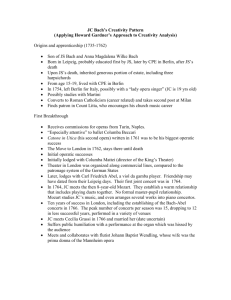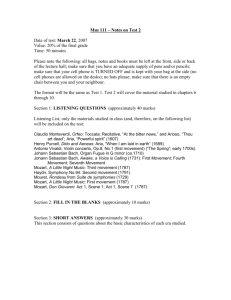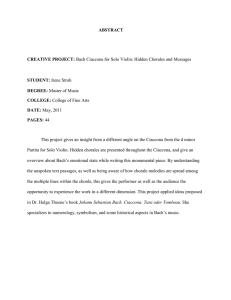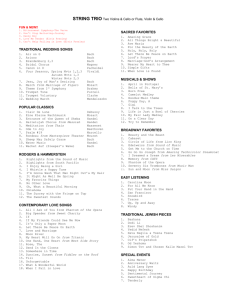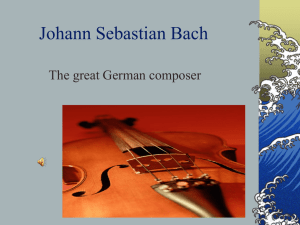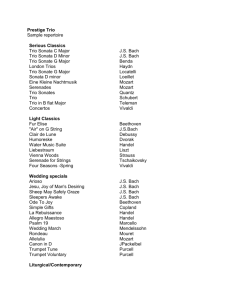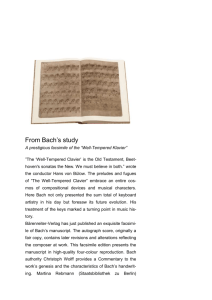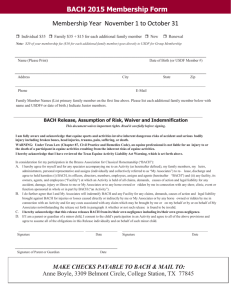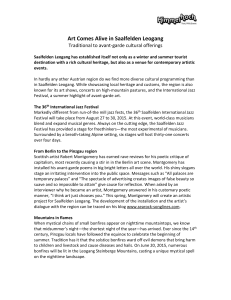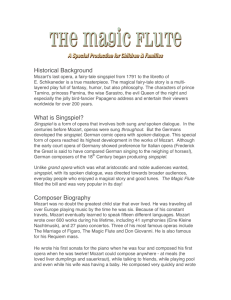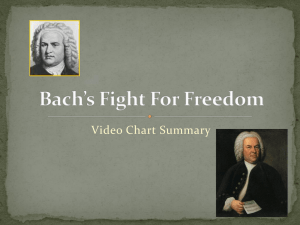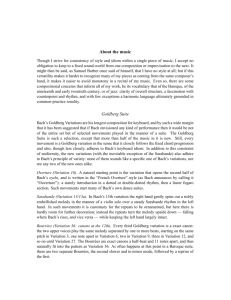Johann Christian Bach Biography
advertisement
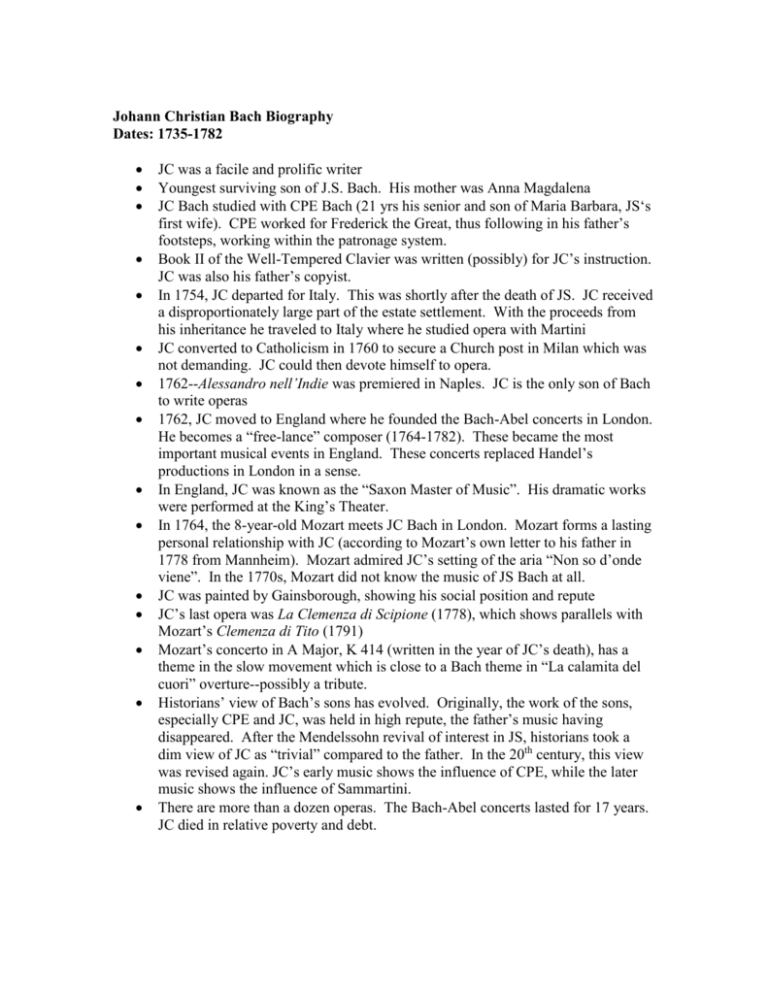
Johann Christian Bach Biography Dates: 1735-1782 JC was a facile and prolific writer Youngest surviving son of J.S. Bach. His mother was Anna Magdalena JC Bach studied with CPE Bach (21 yrs his senior and son of Maria Barbara, JS‘s first wife). CPE worked for Frederick the Great, thus following in his father’s footsteps, working within the patronage system. Book II of the Well-Tempered Clavier was written (possibly) for JC’s instruction. JC was also his father’s copyist. In 1754, JC departed for Italy. This was shortly after the death of JS. JC received a disproportionately large part of the estate settlement. With the proceeds from his inheritance he traveled to Italy where he studied opera with Martini JC converted to Catholicism in 1760 to secure a Church post in Milan which was not demanding. JC could then devote himself to opera. 1762--Alessandro nell’Indie was premiered in Naples. JC is the only son of Bach to write operas 1762, JC moved to England where he founded the Bach-Abel concerts in London. He becomes a “free-lance” composer (1764-1782). These became the most important musical events in England. These concerts replaced Handel’s productions in London in a sense. In England, JC was known as the “Saxon Master of Music”. His dramatic works were performed at the King’s Theater. In 1764, the 8-year-old Mozart meets JC Bach in London. Mozart forms a lasting personal relationship with JC (according to Mozart’s own letter to his father in 1778 from Mannheim). Mozart admired JC’s setting of the aria “Non so d’onde viene”. In the 1770s, Mozart did not know the music of JS Bach at all. JC was painted by Gainsborough, showing his social position and repute JC’s last opera was La Clemenza di Scipione (1778), which shows parallels with Mozart’s Clemenza di Tito (1791) Mozart’s concerto in A Major, K 414 (written in the year of JC’s death), has a theme in the slow movement which is close to a Bach theme in “La calamita del cuori” overture--possibly a tribute. Historians’ view of Bach’s sons has evolved. Originally, the work of the sons, especially CPE and JC, was held in high repute, the father’s music having disappeared. After the Mendelssohn revival of interest in JS, historians took a dim view of JC as “trivial” compared to the father. In the 20th century, this view was revised again. JC’s early music shows the influence of CPE, while the later music shows the influence of Sammartini. There are more than a dozen operas. The Bach-Abel concerts lasted for 17 years. JC died in relative poverty and debt.
